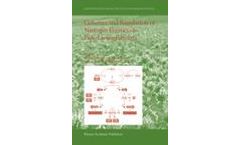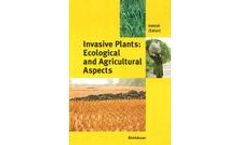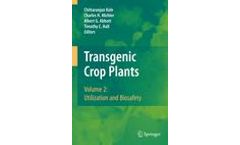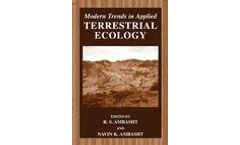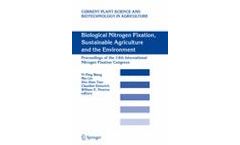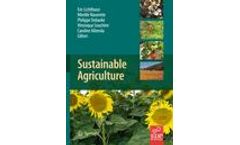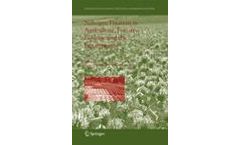ecological-agriculture books
11 books found
Advances in biochemical techniques are revolutionizing the study of invertebrate ecology. Their application to pest problems is generating detailed information on the population genetics of pests, pest-predator relationships and interactions between pests and their environment. ...
Development of transgenic crop plants, their utilization for improved agriculture, health, ecology and environment and their socio-political impacts are currently important fields in education, research and industries and also of interest to policy makers, social activists and regulatory and funding agencies. ...
This book provides a comprehensive and detailed source of information on the genetic and regulatory aspects of biological nitrogen fixation in free-living (non-symbiotic) prokaryotes. Biological nitrogen fixation is represented in a diverse range of microorganisms, among which Klebsiella pneumoniae serves as a paradigm for the genetic analysis of diazotrophy, which is the ability to grow with N2 ...
The aim of this book is to discuss fundamental questions of invasion ecology, such as why particular communities become more invasible than others, what the mechanisms of exclusion of native species by invaders are, and whether invasion can be predicted. In addition, agricultural practices ...
Development of transgenic crop plants, their utilization for improved agriculture, health, ecology and environment and their socio-political impacts are currently important fields in education, research and industries and also of interest to policy makers, social activists and regulatory and funding agencies. ...
This volume brings together some of the foremost leaders in the field of terrestrial ecology. Chapter topics include soil structure and function, economics of biodiversity, crop growth and development, ethnobotany and conservation. The volume is a must-ready for professionals and researchers in the field of botany, zoology, ecology, vegetation science, ...
Mycorrhiza will be the focus of research and study for the coming decade. Successful survival and maintenance of plant cover is mostly dependent on mycorrhization. During the last decade about ten books have appeared on various aspects of mycorrhiza, including two on methodology. The present book has been compiled to give a complete and comprehensive description of the topic to the students ...
Climate variability has major impacts in many parts of the world, including Australia. Developments in understanding of the El Niño - Southern Oscillation Phenomenon have introduced some skill in seasonal to inter-annual climate forecasting. Can this skill be harnessed to advantage? Or do we just continue to observe these impacts? How does a decision-maker managing an agricultural or ...
This volume covers all aspects of fundamental and applied nitrogen-fixation research, extending from biochemistry and chemistry through genetics, regulation and physiology to agricultural practice and environmental impact. It describes recent progress on studies of potential catalysts for nitrogen fixation; how the N2-fixing process is regulated in living cells; the use and impact of genetics and ...
Sustainability rests on the principle that we must meet the needs of the present without compromising the ability of future generations to meet their own needs. Starving people in poor nations, obesity in rich nations, increasing food prices, on-going climate changes, increasing fuel and transportation costs, flaws of the global market, worldwide pesticide pollution, pest adaptation and ...
The outstanding aspect of this book is the integration of basic and applied work on biological nitrogen fixation in the fields of agriculture, forestry, and ecology in general. Nowadays, the concept of sustainability, which originated in agriculture and land use, is reaching many other areas of society and ...


